- Home
- Mack Reynolds
Galactic Medal of Honor
Galactic Medal of Honor Read online
Galactic Medal of Honor
Mack Reynolds
It was the highest and most coveted award of all time. It was given to only the bravest among those defending Earth from the mysterious Kradens. Many had sacrificed their lives for it. The current bearer of the medal became the idol of all mankind—a man above the law, a man who would never want for anything. One man was going to cheat to win it—and live to regret it.
This is an extended version of the novelette Medal of Honor first published in Amazing Stories magazine in Nov 1960.
Galactic Medal of Honor
by Mack Reynolds
I
After his craft had been mechanically wheeled away, Donal Mathers took one of the little hovercarts over to the squadron non-resident officers’ quarters and showered, used a depilatory on his beard, then opened his locker and brought forth a dress uniform. He had thrown his coveralls into a disposal chute. He dressed carefully, checked himself out at the full length tri-di mirror, put his cap on his head, took a deep breath in unhappy anticipation, and headed for his fate.
The hovercart took him the kilometer or so to the administration buildings of the spaceport. He headed for the king size doors and the identity screen picked him up, checked him out in less than a second, and the doors opened before him.
Inside was bustle, the amount of bustle to be expected of a military establishment responsible for some two hundred spacecraft. Don Mathers was used to it. He made his way briskly to his destination.
A uniformed girl looked up from her work at the reception desk.
Don said, “Sub-lieutenant Donal Mathers, reporting to Commodore Bernklau.”
She nodded and did the things receptionists do, and shortly looked up and said, “Go right in, Lieutenant.”
He was about thirty years of age, slim of build and with a sort of aristocratic handsomeness in the British tradition. His hair was not quite blond, his eyes dark blue, his nose high and very slightly hooked. He affected a small moustache. He cut quite a nice figure in his light blue space pilot’s uniform.
Now he snapped a crisp salute to his superior and said, “Sub-lieutenant Donal Mathers reporting from patrol, sir.”
The commodore looked up at him, returned the salute in an off-hand manner and looked down into a screen set into the desk. He murmured, “Mathers. One Man Scout V-102. Sector A22-K223.”
Commodore Walt Bernklau was a small man in the Space Service fashion. Overgrown men were no longer in vogue. Smaller men take up less room in a spaceship, breathe less air and require less food. It was not that a six-footer who weighed over 180 pounds was taboo in space but there was, perhaps, an unstated prejudice against him. Down through the centuries it had been the big man who received the attention, the small man who was a bit scorned. But those had been the days when war was waged with sword and battle-ax, and work performed by the muscular. Things had been reversed. Even women, perhaps instinctively, had come to prefer smaller men.
The commodore wore the tired air of he who commands large numbers, of he who makes weighty decisions every day. He disliked the job but he was good at it. Pushing sixty, he looked forward to retirement.
He took in the younger man now and said, “You’ve been out only five days, Lieutenant.”
Don Mathers said stiffly, “Yes, sir. On the third day I seemed to be developing trouble in my fuel injectors. I stuck it out for a couple of days but then decided that I’d better come in for a check.” He paused only momentarily before adding, “As per instructions, sir.”
The commodore nodded. “Ummm, of course. In a One Man Scout you can hardly make repairs in space. If you have any doubts at all about your craft, orders are to return to base. It happens to every pilot at one time or another.”
“Yes, sir.”
The commanding officer looked down into his screen again. “However, Lieutenant, it has happened to you four times out of your last six patrols.”
Don Mathers said nothing. His face remained expressionless.
The commodore tilted his head slightly to one side and said, “The mechanics report that they could find nothing wrong with your engines, Lieutenant.
The space pilot nodded agreement to that. “Yes sir. Sometimes, sir, whatever is wrong fixes itself. Possibly a spot of bad fuel. It finally burns out and you’re back on good fuel again. But by that time you’re also back to the base.”
The commodore said impatiently, “I don’t need a lesson in the idiosyncrasies of the One Man Scout, Lieutenant. I piloted one for nearly five years. I know their shortcomings—and those of their pilots.”
“I don’t understand, sir.”
The commodore looked down at the ball of his thumb. “You’re out in deep space for anywhere from two weeks to a month. All alone. You’re looking for Kraden ships which practically never turn up.”
“Yes, sir,” Don said meaninglessly.
The commodore said, “We here at Command figure on you fellows getting a touch of space cafard once in a while and, ah, imagining something wrong in the engines, getting your wind up and coming in. But…” at this point the commodore cleared his throat, “… four times out of six? Are you sure you don’t need a psych, Lieutenant?”
Don Mathers flushed. He said, “No, sir. I don’t think that I do.”
The other’s voice went expressionless. “Very well, Lieutenant Mathers. You’ll have the customary three weeks leave before going out again. Dismissed.”
Don saluted snappily, wheeled and marched from the office.
Outside, in the corridor, he muttered an obscenity under his breath. What in the hell did that chair-borne brass hat know about space cafard? About the depthless blackness, the wretchedness of free fall, the claustrophobia, the tides of primitive terror that sometimes swept you when you realized that you were far away from the environment that had given you birth. That you were alone, alone, alone. A million, a seemingly million-million miles from your nearest fellow human. Space cafard, in a craft whose cabin was little larger than a good-sized closet, what did the commodore know about it?
Don Mathers had conveniently forgotten the other’s claim to five years service in the One Man Scouts. And in the commodore’s day the small spaceships had been tinier still and with less in the way of safety devices and such amenities as video-tape entertainment.
Still fuming with inner indignation, he recovered his hovercart and made his way from Space Command Headquarters, Third Division, to Harry’s Nuevo Mexico Bar, which was located on the outskirts of the spaceport, just beyond the main entrance. It was a popular watering hole if only because it was the first one available when you left the base. In a way it was an anachronism since it had a live bartender. The trend, these days, was toward automation even in restaurants and bars. Live personnel in such establishments meant that their labor was not available for industry, for the all-out effort against the Kraden enemy. Harry, of course, was beyond retirement age and no pressure was put upon him to fold up his beloved establishment so that he could work elsewhere.
It was hardly conceivable to Don Mathers that anyone in his right mind would be so smitten by space that after a near lifetime of work as a second class mechanic, he would open a bar near the spaceport so that he could continue to associate with active spacemen and those who aided them. But that was Harry Amanroder.
Don dismissed the hovercart and it turned and headed back for the base motor pool. He entered the Nuevo Mexico and found it all but empty. There were a couple of mechanics in soiled coveralls over in a booth in the corner; both of them women, both of them drinking exotic-looking cocktails that made Don wince.
He climbed up onto a stool at the bar and beckoned to Harry, which was hardly necessary since the old-timer was already head
ed in his direction.
Harry Amanroder was somewhere in his mid-sixties, was heavy-set and big, which was possibly one of the reasons he had never been able to get into space, his life-long dream. His had been the fate to serve those who had attained his dream—and most of them, including Don Mathers, hating it. His pudding face shone when he served an active spaceman, his eyes lit up when he was able to lean on his bar and listen in on their conversation. He loved them all and most of them were tolerant of him.
He said now, “Cheers, Lieutenant. What spins? Thought you were due for a patrol along in here. How come you’re back so soon? Didn’t expect to see you for maybe another couple of weeks.”
Don Mathers looked at him coldly. He said, “You prying into security subjects, Harry? I was on a… special mission. Top confidential.”
Harry wiped the bar with a dirty bar rag, distressed. He said, earnestly, “Well gee, no Lieutenant. You know me. I know all the boys. I was just making conversation.”
“Well, make it with somebody else,” Don said with less than graciousness. “Look, Harry, how about some more credit? I don’t have any pay coming up for a week. My Universal Credit Card is down to its last few pseudo-dollars.”
“Why, sure, Lieutenant. I ever turned you down? You’re into me more than anybody ever comes in here. But, you know me. I never turned down a spaceman in my life. And that goes double for a real pilot. I got a boy serving on the New Taos, you know, the light cruiser.”
Don Mathers knew, all right. He’d heard about it often enough.
Harry was saying, “Any spaceman’s credit is good with me. What’ll it be?”
“Tequila.”
Tequila was the only concession the Nuevo Mexico Bar made to its name, save two sick cactus plants in pots which flanked the entry. Otherwise, the place looked like every other bar has looked in every land and in every era, save the new automated, sterile horrors that were taking over these days.
Harry turned and reached out for a bottle of Sauza. He put it on the bar and took up a lime and cut it into four quarters, then reached back and got a shaker of salt. He took a two-ounce shot glass and filled it carefully with the water-colored liquid H-Bomb.
Don went through the routine. He sprinkled some of the salt on the back of his hand, licked it, picked up the shot glass and tossed its contents back over his tonsils, then hurriedly grabbed up one of the quarters of lime and bit into it.
He said, “I’ll be damned if I know why anybody punishes themselves by drinking this stuff.”
Harry leaned on the bar before him and said, sympathetically, “You know, Lieutenant, I don’t either. I’m a beer-drinking man myself. But, you know, the kind of beer they’re turning out these days, they could stick it back in the horse. No body, no strength, no nothing.” He sighed. “I guess it’s all necessary on account of the war effort. But we still had real beer, back when I was a kid.”
“I doubt it. I remember my grandfather, back when I was a boy. He used to tell us, and over and over again, that the beer in those days wasn’t worth drinking. No hops, no strength. Now when he was a young fellow they really had beer. I bet the complaint has gone back to the Babylonians, or whoever it was that first brewed beer.”
Harry never argued with a real spaceman. He said, “I guess you’re right, Lieutenant. Like another one?”
“Yeah, hit me again,” Don said. In actuality, in his humor, he wished he could think of something really cutting to say to the fawning bartender, but it was too damned much effort.
Harry poured more tequila.
He said, “You hear the news this morning?”
Don said, “No. I just got in. I’ve been in deep space.”
He knocked back the second drink, going through the same procedure as before. He still didn’t know why he drank this stuff, save that it was the quickest manner of getting an edge on.
“Colin Casey died.” Harry shook his heavy head. “The only man in the system that held the Galactic Medal of Honor. Presidential proclamation. Everybody in the solar system is to hold five minutes of silence for him at two o’clock, Sol time.”
“Oh?” Don said, in spite of his humor, impressed. “I hadn’t heard about it as yet.”
Harry said, “You know how many times that medal’s been awarded since they first started it up, Lieutenant?” Without waiting for an answer, Harry added, “Just twelve times.”
Don said dryly, “Eight of them posthumously, and most of them as a result of the big shoot-out with the Kradens.”
“Yeah,” Harry said, leaning on the bar again. His other two customers didn’t seem to require attention.
He added, in wonderment, “But just imagine. The Galactic Medal of Honor, the bearer of which by law can do no wrong. You come to some city, walk into the biggest jewelry store in town, pick up a diamond bracelet and walk out without paying. And what happens?”
Don growled, “The jewelry store owner would probably be over-reimbursed by popular subscription. And probably the mayor of the town would write you a letter thanking you for honoring his fair city by deigning to notice one of the products of its shops. Just like that.”
“Yeah.” Harry shook his head in continued awe. “And, imagine, if you shoot somebody you don’t like, you couldn’t spend even a single night in the Nick.”
Don said, “If you held the Galactic Medal of Honor, you wouldn’t have to shoot anybody. All you’d have to do is drop the word that you mildly didn’t like him, and after a week or so of the treatment he got from his fellow citizens, the poor bastard would probably commit suicide.”
Harry sighed. “And suppose you went into one of them fancy whorehouses, like in Paris or Peking. Anything would be free. Anything.”
Don snorted at the lack of imagination. “Why not just go out to New Hollywood? Look, Harry, mind if I use the phone?”
“Go right ahead, Lieutenant. Anything you want in the place, until two o’clock. Then I close down for the rest of the day, on account of Colin Casey.”
Don knew the Colin Casey story. Everybody knew the Colin Casey story. He had been a crewman on one of the Monitors, the heaviest of Solar System battle craft. When one of the reactors blew he had gone in immediately, improperly shielded, and had done what had to be done. His burns, though treated by the most competent physicians on Earth, had led to his present death, but he had saved the ship and had lived long enough to be awarded, though not to enjoy, the highest decoration the human race had conjured up. Yes, Don Mathers had known of Colin Casey—but hadn’t envied the poor damn fool. Sure, they had kept him alive for years, but what good is life when you’re blind, when you’re sexually impotent, when you can’t even walk? Precious little good the Galactic Medal of Honor had done Colin Casey.
He could have used his pocket transceiver to call Dian Keramikou but the screen was so small that he wouldn’t have been able to make out her features very well and even though he had seen her less than a week before, he wanted to feast his eyes on her.
In the phone booth he dialed and almost immediately the screen lit up and the face of the woman he loved faded in.
Dian Keramikou was a great deal of woman. Possibly five feet eight, possibly 134 pounds, possibly 39-25-39 and every inch glossy and firm. She wasn’t truly a pretty woman. Her features were too vital and just slightly heavy. The brows were heavy, her hair harsh and black and glossy, like a racing mare. She had Indian-black eyes, a bold nose and a broad mouth. Not pretty, no, but strikingly handsome in the Greek tradition which she had inherited from her forebears.
She was obviously in the process of packing when the screen had summoned her. She looked into his face and said, in that slightly husky voice of hers, “Why, Don. I thought that you were on patrol.”
He said, a little impatiently, “Yeah. Yeah, I was. However, something came up and I had to return to base.”
She looked at him, a slight wrinkle on her broad, fine forehead. She said, “Again?”
He said impatiently, “Look, Di, I called you t
o ask for a get together. You’re leaving for that job on Callisto tomorrow. It’s our last chance to be together.
Actually, there’s something that I wanted to ask you about. Something in particular. It might change your mind about Callisto. I don’t know why you’re going, anyway. I’ve been there. It’s a terrible place, Di. There’s no atmosphere. You live under what amounts to a giant inverted plastic fishbowl.”
“I’ve read up on Callisto,” she said in irritation. “I know it’s no paradise. But somebody has to do the work there and I’m a trained secretary. Don, I’m packing. I simply don’t have the time to see you again. I thought that we said our goodbyes six days ago.”
“This is important, Dian.” His voice was urgent.
She tossed the two sweaters she was holding into a chair, or something, off-screen, and faced him, her hands on her hips.
“No it isn’t, Don Mathers. Not to me, at least. We’ve been all over this. Why keep torturing yourself? You’re not ready for marriage, Don. I don’t want to hurt you, but you simply aren’t. Look me up, Don, in a few years.”
“Di! Just a couple of hours this afternoon.” He was desperate.
Dian Keramikou looked him full in the face and said, “Colin Casey finally died of his burns and wounds this morning. The President has asked for five minutes of silence at two o’clock. Don, I plan to spend that time here alone in my apartment, possibly crying a few tears for a man who died for me and the rest of the human race under such extreme conditions of gallantry that he was awarded the highest honor of which man has ever conceived. I wouldn’t want to spend that five minutes while on a date with another member of my race’s armed forces who had deserted his post of duty.”
Don Mathers turned, after the screen had gone blank and walked stiffly back to the bar. He got up on the stool again and called flatly to Harry, “Another tequila. A double tequila. And don’t bother with that lime and salt routine.”

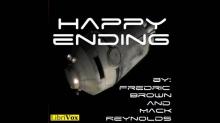 Happy Ending
Happy Ending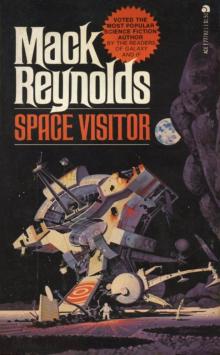 Space Visitor
Space Visitor A Kiss Before Loving
A Kiss Before Loving Episode on the Riviera
Episode on the Riviera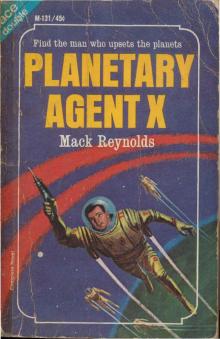 Planetary Agent X
Planetary Agent X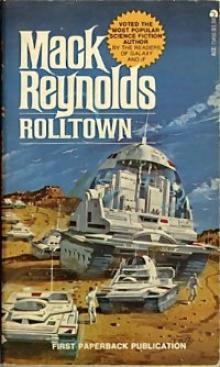 Rolltown bh-3
Rolltown bh-3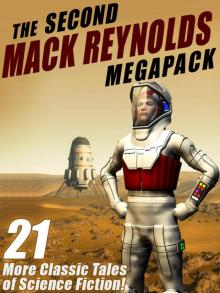 The Second Mack Reynolds Megapack
The Second Mack Reynolds Megapack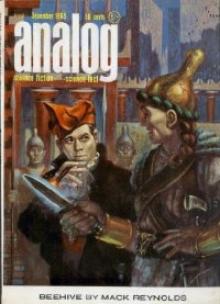 Dawnman Planet up-2
Dawnman Planet up-2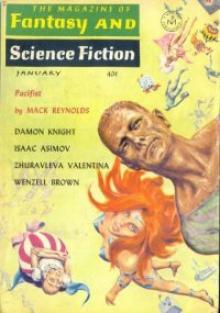 Pacifist
Pacifist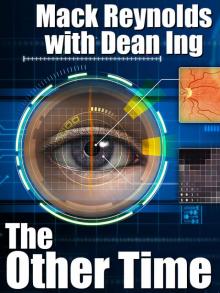 The Other Time
The Other Time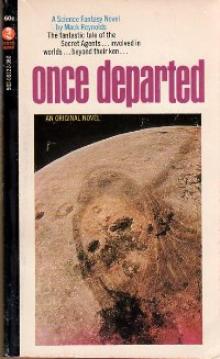 Once Departed
Once Departed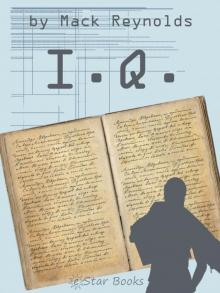 IQ
IQ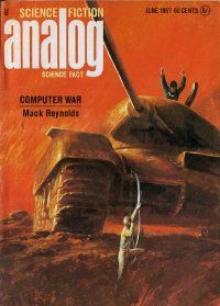 Computer War
Computer War Earth Unaware
Earth Unaware The Rival Rigelians up-3
The Rival Rigelians up-3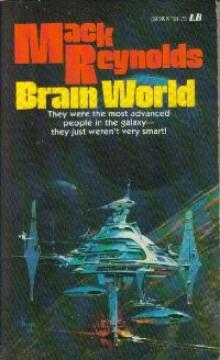 Brain World up-7
Brain World up-7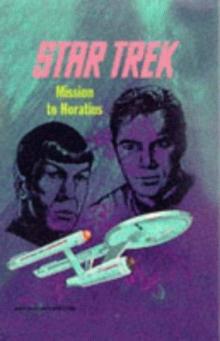 Star Trek - TOS - Mission to Horatius
Star Trek - TOS - Mission to Horatius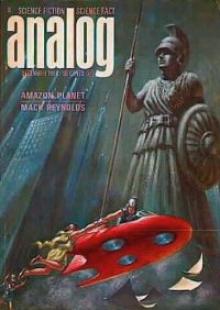 Amazon Planet up-5
Amazon Planet up-5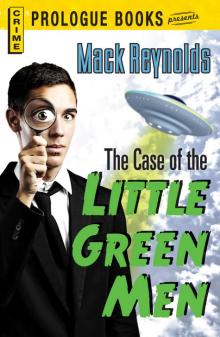 The Case of the Little Green Men
The Case of the Little Green Men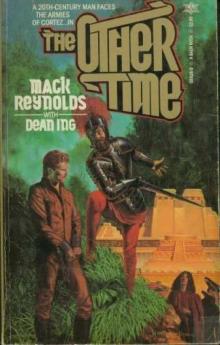 Other Time
Other Time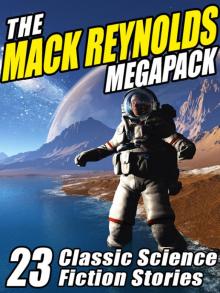 The Mack Reynolds Megapack
The Mack Reynolds Megapack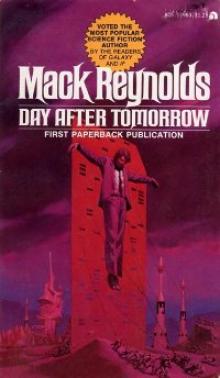 Day After Tomorrow
Day After Tomorrow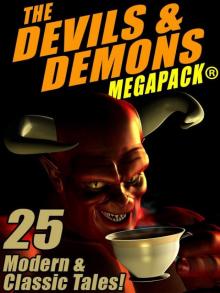 The Devils & Demons MEGAPACK ®: 25 Modern and Classic Tales
The Devils & Demons MEGAPACK ®: 25 Modern and Classic Tales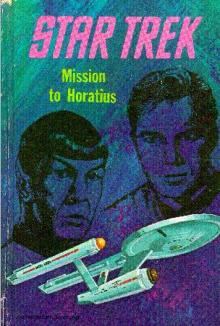 Mission to Horatius
Mission to Horatius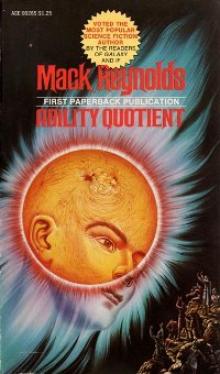 Ability Quotient
Ability Quotient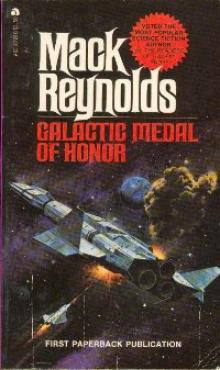 Galactic Medal of Honor
Galactic Medal of Honor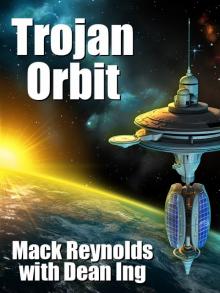 Trojan Orbit
Trojan Orbit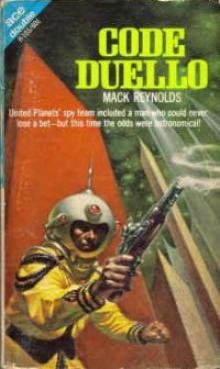 Code Duello up-4
Code Duello up-4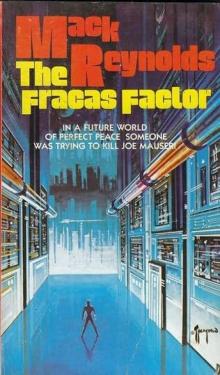 The Fracas Factor
The Fracas Factor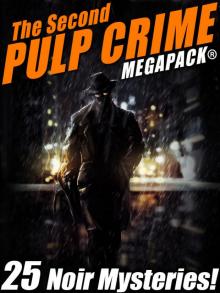 The Second Pulp Crime
The Second Pulp Crime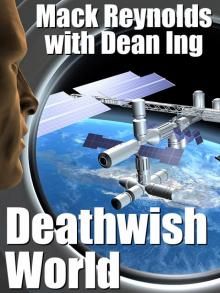 Deathwish World
Deathwish World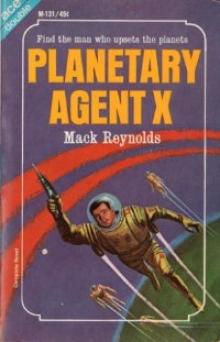 Planetary Agent X up-1
Planetary Agent X up-1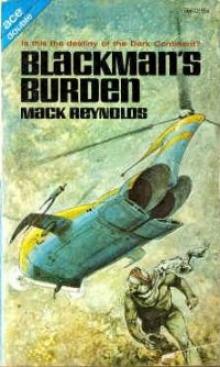 Blackman' Burden na-1
Blackman' Burden na-1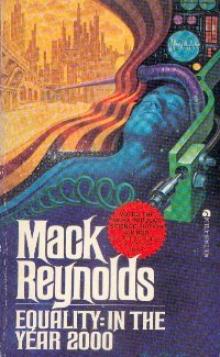 Equality: In the Year 2000 jw-2
Equality: In the Year 2000 jw-2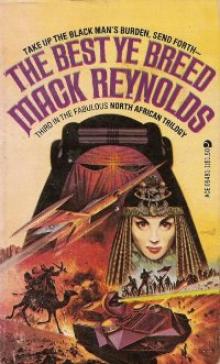 The Best Ye Breed na-3
The Best Ye Breed na-3 The Jet Set
The Jet Set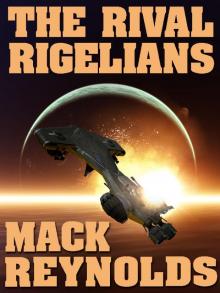 The Rival Rigelians
The Rival Rigelians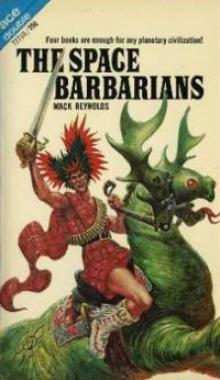 The Space Barbarians
The Space Barbarians